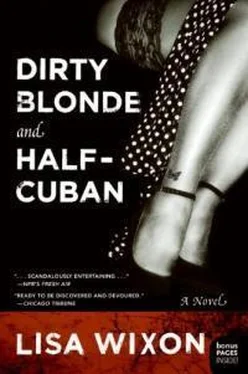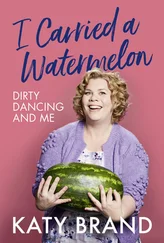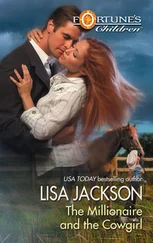Lisa Wixon - Dirty Blonde and Half-Cuban
Здесь есть возможность читать онлайн «Lisa Wixon - Dirty Blonde and Half-Cuban» весь текст электронной книги совершенно бесплатно (целиком полную версию без сокращений). В некоторых случаях можно слушать аудио, скачать через торрент в формате fb2 и присутствует краткое содержание. Жанр: Современная проза, на английском языке. Описание произведения, (предисловие) а так же отзывы посетителей доступны на портале библиотеки ЛибКат.
- Название:Dirty Blonde and Half-Cuban
- Автор:
- Жанр:
- Год:неизвестен
- ISBN:нет данных
- Рейтинг книги:4 / 5. Голосов: 1
-
Избранное:Добавить в избранное
- Отзывы:
-
Ваша оценка:
- 80
- 1
- 2
- 3
- 4
- 5
Dirty Blonde and Half-Cuban: краткое содержание, описание и аннотация
Предлагаем к чтению аннотацию, описание, краткое содержание или предисловие (зависит от того, что написал сам автор книги «Dirty Blonde and Half-Cuban»). Если вы не нашли необходимую информацию о книге — напишите в комментариях, мы постараемся отыскать её.
Dirty Blonde and Half-Cuban — читать онлайн бесплатно полную книгу (весь текст) целиком
Ниже представлен текст книги, разбитый по страницам. Система сохранения места последней прочитанной страницы, позволяет с удобством читать онлайн бесплатно книгу «Dirty Blonde and Half-Cuban», без необходимости каждый раз заново искать на чём Вы остановились. Поставьте закладку, и сможете в любой момент перейти на страницу, на которой закончили чтение.
Интервал:
Закладка:
“I’m off to check,” I said, and hang up. The raging sun was starting to set, and the line across the street for peso ice cream stretched down the block. La Rampa,as the street is known, was packed with boys who cuff their jeans like James Dean. Boys looking for men who love boys. Men with money to spend.
Shivering in the heat, I made my way home.
3
T he first I’dheard of José Antonio was in the hospital. My mother was battling an indefensible foe, one that attacked the very molecular structure of her cells.
We watched her waste away in the cancer ward at a Georgetown clinic. She’d just landed in her fifties. A mere month before, a vibrancy hummed inside her small body, as if there wasn’t enough physical space to contain her spirit. Now even her breath hinted at the internal decay. Her long blonde hair had lost its luster, and her eyes their incessant gleam. Her appearance frightened me, but I tried not to show it.
No one told me she was going to die, or thought to prepare me. Whomever I asked just patted my head and told me everything would be all right. Afterward, it took me a long time to trust an adult again.
One afternoon, my mother’s nails dug into my skin, and she pulled me close.
“José Antonio,” she cried softly, touching my face. “Find him for me.” My mother’s eyelids only shut halfway, stuck on dry membranes—one of the desiccant effects of the morphine that dripped into her veins. “He’s in Havana, with his family,” she whispered. “They’re expecting you.”
Havana. I was born there in 1978, as an American, the first and only child of my diplomat parents serving abroad. My father and my mother returned to the U.S. in 1980, my one-year-old hand in theirs, just before the Port of Mariel unleashed a torrent of hopeful rafters bound for Floridian shores.
When I was growing up, my mother never spoke about Cuba, and I barely registered the country as my homeland. Diplomats’ children born abroad think of themselves as having been delivered on U.S. territory, on a little island of America within the foreign country. That I could have ties in Cuba, with Cubans—that someone was waiting for me—was information that couldn’t register in my young brain.
“You have to find them, my little monkey,” my mother said.
Little monkey.Hearing my pet name made me grin. My first-grade teacher at the foreigners’ school in Dakar gave me my childhood nickname, from the Curious Georgebooks my mother had shipped from back home during our tour of duty in Africa.
In the mornings, the teacher would read the books aloud in class, and in the afternoons, my mother would translate the stories into French to an audience of Senegalese children who’d gather near our house. Children who giggled as loud as me over the misadventures of the baby primate.
From the hospital bed, I carefully counted each time my mother called me her little monkey. I’d listen to every sentence, every pain-fueled rambling, in hopes of hearing the magic phrase. I invented a game: that on the tenth time she said my pet name, she would be healed, and we’d all go home together.
She never made it that far.
In the throes of her battle she appealed to friends long vanished, to her parents recently deceased. To ghosts. But José Antonio was the one who most agitated the peace of her unconscious mind. I’d never heard of him and, at first, believed him to be a manufacture of the morphine and the pain.
The look in Aunt June’s eyes told me differently.
Aunt June flipped through the guest book that lay bedside on the hospital table. “See all these visitors here come to say good-bye?” she asked, exaggerating her Mississippi accent whenever it became necessary to change the subject. “Your momma was always so popular. Glad you two had the foresight to bring her back instead of letting her rot in one of your Third World hellholes.”
“They have excellent medical care in South America,” retorted my father, who walked in with the doctor. “But my wife preferred to return to the States.”
His eyebrows slightly rose at seeing my aunt. My father was tall and lithe in one of his beautiful suits, carefully threaded by the fingers of the underprivileged.
“A girl your age should be in one place, not tramping around the world,” June said to me, but loud enough for my father to hear.
“Nice to see you too, June,” he retorted.
Born and raised in Natchez, Mississippi, Aunt June and my mother were the final offspring of the Montgomery family, an upstanding kind of folk with a proud past. Long before the sisters were born, cotton mills shut down and the family’s land became worthless. But when my aunt and mother were teenagers, oil was discovered in the thick, burbling underbelly of the forgotten dirt, and the once-worthless crop fields became gold mines.
Aunt June was the spitfire eldest, and she’d multiplied her small fortune in the horse-breeding trade. She was a proper Southern belle in lipstick and diamonds, but with the cowboy boots and men’s tailored suit that certainly drove her mother bonkers.
“Hello, John Briggs,” said the doctor, shaking my father’s hand. “Bad news. It’s metastasized to the lungs,” I heard the doctor say quietly to my father.
My father showed no reaction at the news, but his eyes rested on my face, and in them was a sorrow I’d never seen before. My instinct was to jump up and embrace him, but I knew a hug, or any physical affection, would fluster him.
My father quickly became engrossed in hushed conversation with the specialist. I leaned over to my aunt and repeated the question.
“Who is José Antonio? She keeps calling for him.”
Aunt June studied my father’s profile and then looked at me. Her eyes were indecisive.
“You’re too young to lose your mother,” she said. “Thirteen is too damned young.”
4
M y mother diedsix weeks to the day after she’d first fainted in Montevideo, a few kilometers from the home we’d been assigned at our new post in South America. My father was in his twentieth year with the U.S. Foreign Service, the State Department, and whatever overlapping federal bureaus employed his intelligence.
His peripatetic lifestyle—a new foreign assignment every few years—was the thing that most enthralled my mother about him during their courtship two decades before. Each new country, she claimed, she loved more than the last.
My mother told me of an African religion that held that each person was born the child of a specific god, and took on the god’s characteristics through life. I’m certain hers was a gypsy god, one that infected her blood with the love of the open road, the unknown, the shock that comes with the discovery of a new, earthly beauty.
Her enthusiasms steered the journeys we undertook in the poor countries that were more home to me than my own America. We shared close-knit bonds with other foreign-service families—and it was how I met my best friend, Susie, herself a diplomat’s daughter. Together with our mothers, we explored the sand dunes and deserts, oceans and rivers, and the cultures and customs that make up a foreign nation.
It was a dream childhood.
Although my father worked harder and longer than the other fathers, the few moments I spent with him each night were the highlight of my young life.
My father would come to my room before bedtime, straight from a grueling day at the embassy. Our ritual rarely wavered: he’d drape his suit jacket over a chair, unloosen a red tie, and swing his long legs off the side of my bed. Then I’d be told to pick a title from the stack of books on my nightstand. I would pretend to consider the choices, and he would feign shock when I chose a shopworn copy of Curious George.I loved the way my father read those stories, even more than my mother’s recitations, because I always imagined he was the Man in the Yellow Hat, the stringbean scientist who claimed the monkey from his habitat and oversaw his perennial mischief. It was this way I always thought of my father, benevolent if distant, kind if reserved. A protector.
Читать дальшеИнтервал:
Закладка:
Похожие книги на «Dirty Blonde and Half-Cuban»
Представляем Вашему вниманию похожие книги на «Dirty Blonde and Half-Cuban» списком для выбора. Мы отобрали схожую по названию и смыслу литературу в надежде предоставить читателям больше вариантов отыскать новые, интересные, ещё непрочитанные произведения.
Обсуждение, отзывы о книге «Dirty Blonde and Half-Cuban» и просто собственные мнения читателей. Оставьте ваши комментарии, напишите, что Вы думаете о произведении, его смысле или главных героях. Укажите что конкретно понравилось, а что нет, и почему Вы так считаете.












